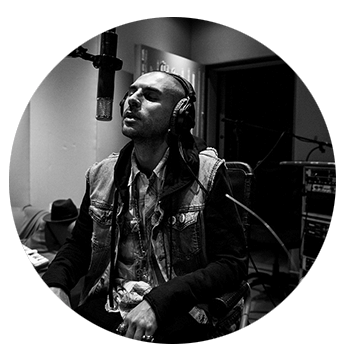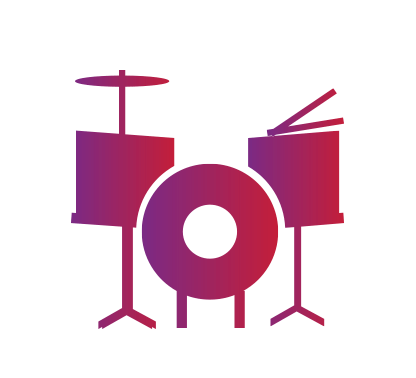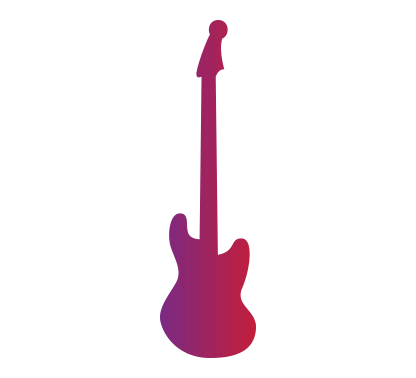21 Benefits of Learning A Musical Instrument
Introduction:
Since ancient times, musicians have always been regarded with respect and admiration. But there is more to being a musician that meets the eye or, in this case, the ear!
Musicianship comes with a lot of struggles and hurdles but these challenges shape your psyche and mind. Because of that, learning how to play a musical instrument and honing your skills rewards you with many additional benefits.
Today, we are going to take a look at a good chunk of those benefits and explain why musicians are the center of attention even when they’re not performing. Of course, all of these apply to singers, as well.
Now, let’s take a look at all the perks you gain by being a musician and performer:

Share this Image On Your Site
21 BENEFITS OF LEARNING A MUSICAL INSTRUMENT:
-
Memory Skills
- Playing a musical instrument is a workout for your brain. If you play a musical instrument regularly, your brain will have better memory and power of concentration.
-
Coordination Skills
- When you are playing an instrument, you are asking your body and brain to coordinate your eyes, hands and mind quickly. Your hand-eye coordination will significantly start to improve when you learn a musical instrument..
-
Math
- Did you know that playing a musical instrument can help you understand mathematics better? Music develops the sense of beat, rhythm and scale which triggers problem solving skills..
-
Reading & Comprehension Skills
- When you are learning a musical instrument, you are always reading and trying to understand notes, pitches and chords. This will improve your reading and comprehension skills.
-
Responsibility
- Each musical instrument requires maintenance. When you practice music, you are responsible for taking care of your instrument. This helps to build a sense of responsibility.
-
Culture & History
- Music is very closely tied to the history and culture of different parts of the world. Learning music connects us to a rich world culture.
-
Musical Creativity
- With a musical instrument, you can create music from your own imagination—an incomparable benefit.
-
Social Skills
- A musical instrument can be a conversation starter. Depending on what type of music you are creating, you can engage in different kinds of conversations. Music learners are never alone.
-
Self-expression
- When you learn a musical instrument, you also learn how to express yourself. Playing music enables us to express the full range of emotions and even to turn sad experiences into beauty and meaning.
-
Emotional Development
- People who learn musical instruments are more emotionally stable and develop greater empathy towards others.
-
Auditory Attention
- Music improves auditory attention. Once you’re familiar with a musical instrument, you will be able to pick up predictable patterns from surrounding noise.
-
Academic Achievement
- A study about an SAT exam showed that those who had experience with musical instruments scored 63 points higher on verbal skills and 44 points higher on math compared to those who didn’t have any experience.
-
Relaxation
- When you are playing an instrument, you are asking your body and brain to coordinate your eyes, hands and mind quickly. Your hand-eye coordination will significantly start to improve when you learn a musical instrument.
-
Discipline
- Learning an instrument is not an easy task! You’ll need to practice in order to be good at playing music. The learning process teaches you to be more disciplined in everything you do..
-
Creative Thinking
- Creative thinking is something that you learn to use when you are surrounded by instruments that can perform creative tasks. Any musical instrument is a great help to improve your creative thinking—which need not be limited to music. Many directors and artists were good musicians before they started their careers.
-
Teamwork
- Learning music gives you a chance to perform with other musicians. You will often engage in jamming sessions with your friends or bandmates. This improves the ability to collaborate and work in a team.
-
Risk-taking
- Performing any new piece is a challenge. The process of preparing a piece for performance teaches you to take calculated risks and how to handle risk.
-
Confidence
- Knowing how to play a musical instrument can give you a confidence boost!
-
Management Skills
- When you are learning a musical instrument, you’ll need to be a good manager to keep things organized. Whether it is getting your piano tuned or organizing your next gig, everything needs care and management. This will teach you the art of being a good manager.
-
Performance Skills
- If you are learning a musical instrument, at some point you’ll no doubt perform, be it for family or on a big stage. This skill can help you to become a better presenter in general.
-
Likability
- People love music, and they love musicians! Far from being a mere party trick, music adds beauty and meaning to people’s lives.
Intruments to start your musical journey:
The Brain, Memory, Cognition and Concentration:
Learning how to play a musical instrument is mentally very challenging. Memorizing song lyrics, note order, chord structures, arpeggios, scales, rhythm patterns for drums and guitar, synchronizing the left and right hand, memorizing the order of parts of a long composition and even remembering the correct setup and maintenance process of your instrument takes a lot of time and repetition.
These mental exercises put your brain under constant pressure, but unlike with your job or university, music is a way to relax. That is why this type of pressure is very good for your mental health.
Compare it to physical exercise and work- carrying heavy grocery bags and cleaning the house leaves you exhausted, but a challenging day at the gym leaves you feeling strong and refreshed.
When you play a musical instrument, different parts of your brain are stimulated and are working to bring all the pieces of a song or composition together The parts of the brain at work are controlling motor skills, visual perception and, of course, audio perception.
This type of mental workout strengthens your memory and can boost even your concentration power. An additional skill that you develop is the ability to notice details faster and to remember them better.
These mental skills can be applied in different manners. Some musicians show better understanding of math and it’s application in different sciences and fields, like physics, chemistry and statistics.
While strumming your guitar isn’t a replacement for learning formulas, the creative and cognitive boost can help you to visualize, conceptualize and break down a mathematical problem which can lead to faster and more elegant solutions.
Another common link exists between music and language. The fact that you spend a lot of time analyzing musical structures and read about music theory has an added benefit – it boosts reading and comprehension skills.
Reading and memorizing lyrics can additionally boost your interpretation skills, foreign language competence and both your passive and active vocabulary.
Studies have shown that musicians often score better at standardized tests such as the SAT. On average, musicians score better in math and languages than non-musicians.
The better academic achievements of musicians compared to non-musicians speak for themselves.
All in all, music is able to boost a lot of your mental activity in different ways which can more or less directly affect other areas of your life in which cognition, information processing and fast, intuitive thinking are required.
Be it a task which requires a lot of attention or fast reactions, music is the way to hone and internalize mental processes and to wire the left and right hemispheres of your brain and to boost the connections between the neurons.
Emotions, Mental Health, Mental Stability, Empathy, Social Skills and Expressions
If you haven’t noticed already, a lot of these benefits are tied together and work together to create new benefits. For example, your boosted language skills affect your ability to express yourself, both about factual matters, as well as on an emotional plane.
Communication and friendship are very important in our everyday lives but are also essential for our own mental health and stability.
In addition to that, music can boot your emotional intelligence and empathy. These are connected closely to your social skills, just like language is.
Because of its properties music can connect people and help them understand each other better which is why in many cultures music plays an important part in tradition and rituals.
The net-result is that people who play musical instruments often think about emotions, morals and how others feel in certain situations.
All of these can make your communication skills excel and help you navigate through many social situations which can be mentally challenging to non-musicians.
Improvisation, performance and composition can help you get out of your comfort zone and this can also help you look at the world with a different pair of eyes, listen to the people with different pair of ears and notice more details about both your own problems and the problems of others.
The true power of music can be witnessed when we take a look at people suffering from mental illnesses like Alzheimers and Dementia. Music is used in many different therapies.
But even ordinary people suffer from sadness, loss, stress and even depression. Music can help you overcome these difficulties and be a good additional source of motivation and inspiration.
Different kinds of music can certainly alter how we feel or even how fast our heart beats. The psychologist Daniel Levitin is a professor of psychology, behavioral neuroscience and music at McGill University in Montreal.
In addition to that, he is a former rock musician and studio producer, he now studies the neuroscience of music and does research how music impacts our mental and physical health.
He rightfully claims “we’ve seen evidence that music can alter brain chemistry and even the production of cytokines, immunoglobulin A, and other components of a healthy immune system”.
He goes on to say that “There’s stronger evidence that it can affect mood and heart rate and respiration rate.” That means that music can go even beyond simple emotional boosts and really affect our overall health.
Communication, Social Interaction and Likability, Teamwork and Confidence
As we’ve already seen, music is very similar to language. That is because music is just another way to communicate with people around us. Musical styles and genres vary over cultures yet often they are easily understood and relatable.
Music helps us create partnerships and to find friends. It helps us connect on an emotional level and to forge new bonds both with people in our vicinity, but also online. It also provides a medium for reaching huge numbers of people in a short time.
By listening to different genres and styles of music and by learning the lyrics of songs from different countries, sometimes even in different languages, can help us to learn about different cultures, ancient countries and the histories of hundreds of different nations and tribes.
Being knowledgeable about different cultures and styles of living can often be useful in social interaction, but can also be a great conversation starter.
The different experiences that you can gain as a musician can definitely boost your communication and social interaction skills. And by learning to perform, you get used to being in the spotlight which develops your confidence.
Talkative and confident people are always liked by others more and they always stand out. And this is especially true for singers and instrumentalists!
You will always be asked to sing or play a cool song and if you can deliver a good result, you will be rewarded for that! In addition to that, confidence and communicative skills are necessary both for your musicianship and for your career, even if you’re not a full-time musician.
Being liked by your future or current boss is never a bad thing and can get you out of a bad situation from time to time!
The arts increase an individual’s sense of belonging or attachment to a community. You are maybe a part of a band, maybe you just play with a few friends from time to time.
Or maybe you spend hours lurking on musicians’ forums online and posting the newest memes in Facebook groups. Whatever your favorite medium of communication is, music is always there to connect you with others.
In addition to that, playing with a band can help you learn about teamwork and waiting for your turn to shine. If you’re a singer and always clash with your guitarist, your band will simply not make it.
Being with people for multiple hours a day, you learn how to respect each other, listen to each other and how to work as a whole.
This skill will be most certainly useful in many different areas of your life, including your career, freelance work, performances, interacting with teachers and your children and with your love interest.
To summarize, being a musician means working with people and getting to know them. Sometimes that will include a performance or a face-to-face discussion, sometimes it will be friendly chatting online.
But no matter how it goes, you will gain valuable knowledge about people and cultures.
Professional skills, auditory perception, risk taking and time management
Being a musician means that you have to practice often and sometimes for prolonged periods of time. Some people prefer to practice three times a week for two hours, others prefer daily sessions of thirty minutes.
Learning how to manage your time and adjust your private life, profession and hobbies takes practice but after you succeed you will be able to use those skills without even noticing it.
Practice is extremely important for all musicians. By learning how to diligently practice every day or every two days, you develop a strong sense of responsibility and you know that you have to work to reach your goals.
And just as your skills need honing, your instrument requires maintenance. By learning to take care of your stuff you also develop a sense of responsibility and respect for the time and possessions of other people.
A very important skill you gain as a musician is auditory perception. This ability will help you concentrate and learn more in important meetings or at the university.
It helps you filter out all the important details in a conversation and to memorize them. Due to the complex nature of music, coordination of different skills is also something that you will learn.
With auditory perception, you will also develop at least slightly better visual perception and pure concentration skills. All of these are very important for any work environment.
Finally, the ability to improvise and to think of musical lines on the spot will strengthen your intuition and confidence. In life, you often have to decide on things quickly and sometimes even take certain risks.
Your musical education will surely help you recognize what you can and can’t do and will help you pick your battles. The confidence behind your decisions will inspire others around you and you will gain their trust and admiration.
And even when you do make a mistake, you will know how to quickly adapt to the new situation and make the best of it. Just as there are no wrong notes, but only wrong times to play them, nothing in your life is an irreversible mistake – it’s always what you make out of your situation.
CONCLUSION
Being a musician is never easy and requires a lot of time, work, practice and investment. But the payout is simply astonishing!
Becoming a musician will change your life from its roots. There will come a time where you will be unable to remember what you were doing before the singing lessons and before you picked up your first instrument.
All journeys start with a first step – even the biggest piano masters have started by playing one note, one key at a time, with only one finger at the time, and afterwards they learned one chord, one arpeggios, one scale at a time.
We hope you enjoyed our latest article and our infographic! What is your favorite benefit of playing an instrument and singing and how has being a musician helped you?
If you’ve enjoyed this article, please share it with your friends and convince them to follow you on the path of music!







